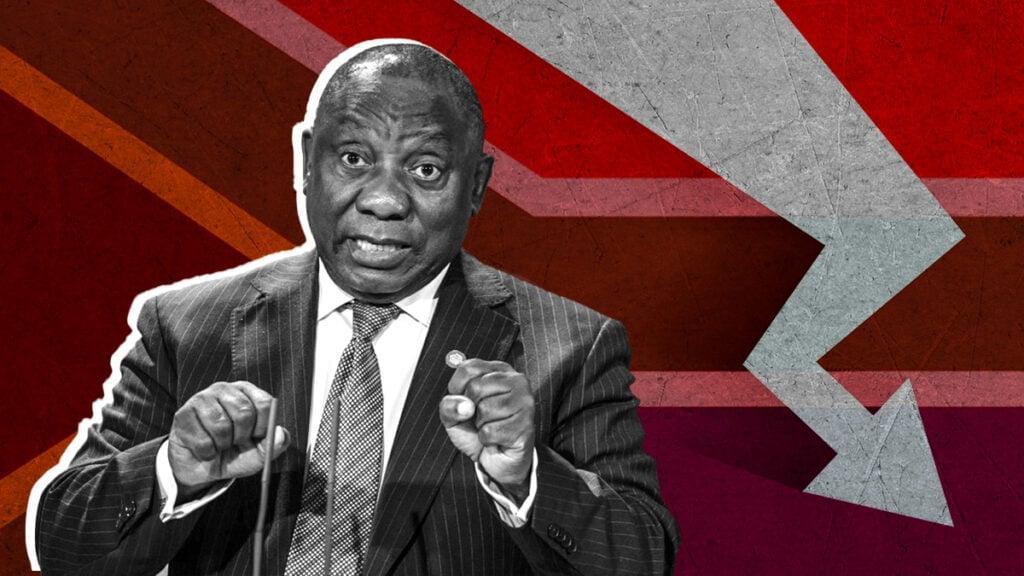Shaun Jacobs
Africa-Press – South-Africa. To achieve economic growth of above 4% per year, South Africa needs to get its energy transition right, revise the empowerment scorecard, and ensure robust property rights.
This is feedback from political and economic analyst Dr Frans Cronje, who outlined how South Africa can reignite its economy during a PSG Think Big interview on 29 May.
Cronje explained that South Africa has many advantages over its emerging market peers, yet it has failed to grow at a similar rate over the past decade.
The country has a functioning democracy, a free and open society, and a free market economy with deep and liquid capital markets.
This, coupled with South Africa’s relatively impressive infrastructure compared to most emerging markets, implies that the country should easily match or outpace its peers in terms of economic growth.
Yet, the country has failed to do so, with its growth rate averaging 0.8% per year for the past decade. This is slower than its population growth of 1.6% per annum, meaning the average South African has gotten steadily poorer.
Cronje attributes this poor performance largely to the decline in fixed investment in South Africa, with companies and individuals being unwilling to commit capital to the country for extended periods.
This indicates a decline in trust in the country, its government, and state policies among investors and businesses.
Many companies operating in South Africa have been investing primarily to maintain their operations over the past decade and have not committed capital to growth.
For example, many have invested millions in backup or alternative energy sources and backup water storage, rather than expanding their operations.
This means that the meagre growth the country has experienced concerning investment has not translated into meaningful improvement in terms of employment.
As a result, there have been calls for radical changes to South Africa’s political and economic systems, which could be potentially disastrous if implemented.
Cronje said that while South Africans are not a radical population, with most being incredibly moderate, the easiest way to take the wind from the sails of populism is to get the economy to grow and improve the living standards of individuals.
The three things needed for economic growth
Social Research Foundation head Dr Frans Cronje
Cronje outlined three key areas that South Africa must address to achieve economic growth of above 4% per annum, which is comparable to most emerging markets.
Economic growth at this rate, if sustained for twenty years, will reduce unemployment to 10% and lead to a significantly higher standard of living for South Africans.
“If we want to lift the economic rate to 4% and above, then the country has to close the fixed investment gap and lift it by at least 10 percentage points to 25% of GDP,” Cronje said.
“It is not difficult. We are not trying to do something that no other country has ever done. All we are trying to do is what almost every emerging economy has done.”
The first thing needed to increase fixed investment is South Africa’s energy transition and how that plays out over the next decade.
Here, Cronje urged South Africans to think pragmatically and focus on energy security, creating sufficient capacity for the economy to grow without running out of electricity.
“South Africa has more than enough installed energy-generating capacity in the defunct coal fleet to make a growth rate of 4% of GDP possible,” Cronje said.
All that needs to be done is the refitting of these plants and adequate maintenance, which is difficult but not impossible.
“This will run into opposition from the global green lobby and the Europeans, but it will not face opposition from the Trump administration,” he said.
“All South Africa needs to say is that, ‘In our unique situation, with a young democracy, let us transition to clean energy on our own terms. Do not put pressure on South Africa to back off from coal.”
If we do this and get it right, there will be no energy ceiling on future economic growth for the next decade.
The second thing to do is not to tax capital on arrival, which deters investment in South Africa and prevents economic growth.
“If a firm wishes to commit to South Africa, no matter the size, and build plants and equipment in the country, judge the empowerment responsibilities differently,” Cronje said.
“The real building blocks of empowerment are fixed investment, tax payments, employment opportunities, and exports.”
“Just tweak the approach to empowerment to make it clear to companies that those are the metrics we want to count, and not just narrow racial criteria.”
If that can be done, a major impediment to investment and growth can be removed overnight. Cronje already thinks the country is heading this way, slowly but surely.
The third thing to do is the question of property rights, with Cronje saying that they have to be 100% secure for any investor to commit capital to South Africa.
“There is no policy in South Africa called the Land Expropriation Act. There is a piece of expropriation policy that allows the seizure of any fixed or movable asset without market-related compensation,” Cronje explained.
“That needs to be tweaked, to say that in the event of expropriation, the primary issue to be considered by a court is market value.”
Cronje said that in a free and open economy, it is just and equitable that owners get market value for assets that are expropriated.
“If South Africa gets these three things right, then you will see a rise in fixed investment which will be fairly rapid and economic growth will lift soon after.”
Source: dailyinvestor
For More News And Analysis About South-Africa Follow Africa-Press






